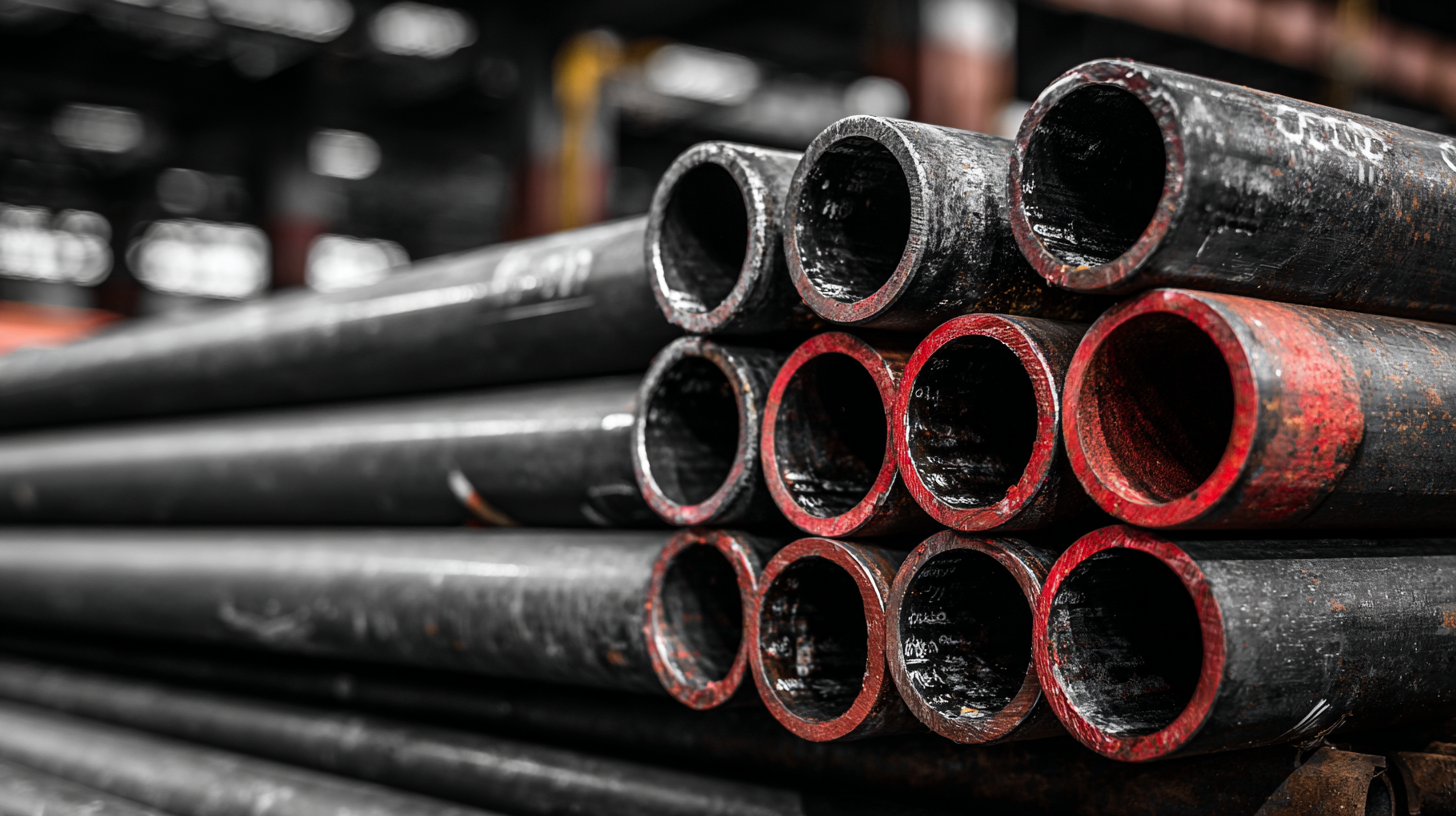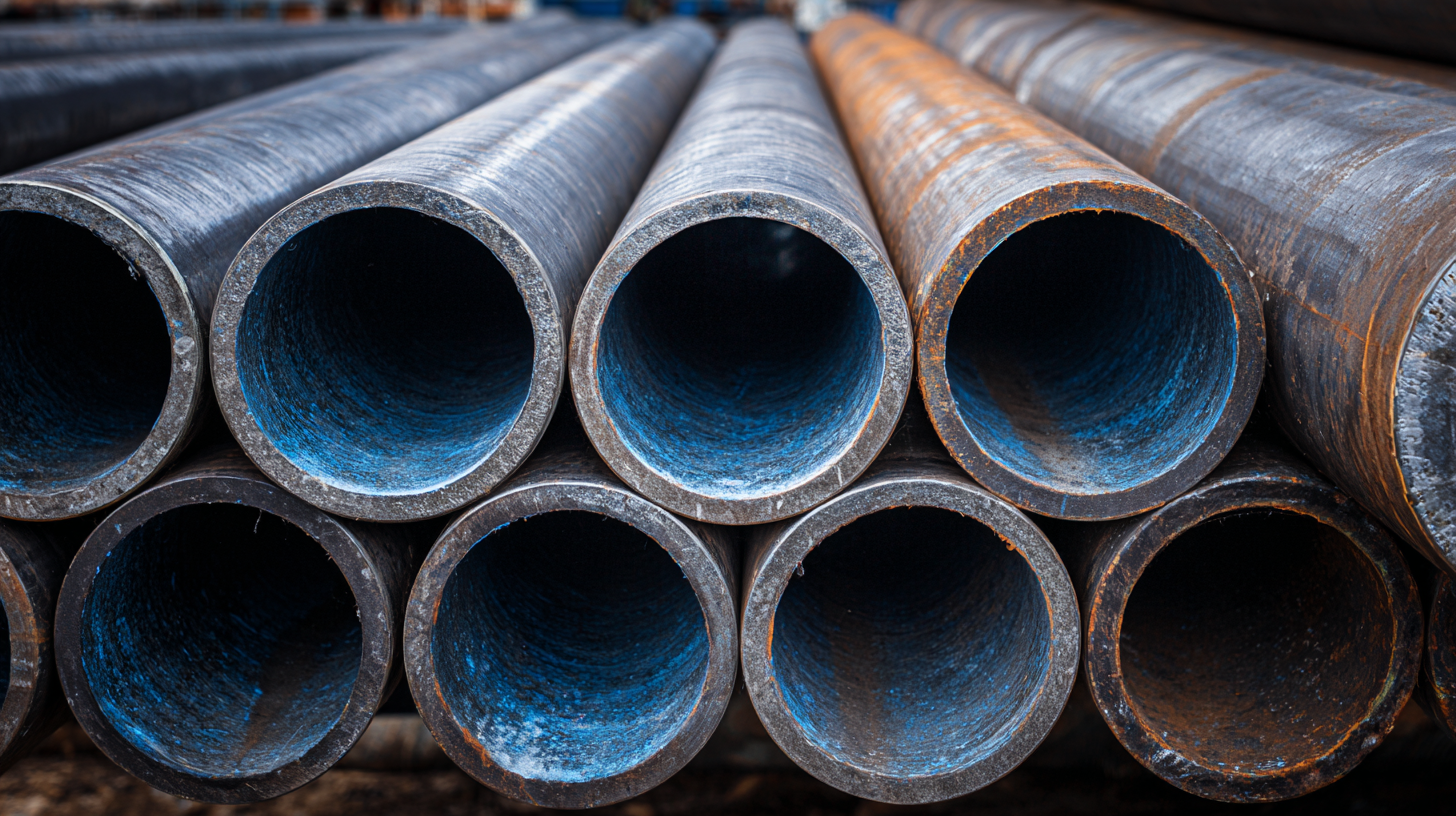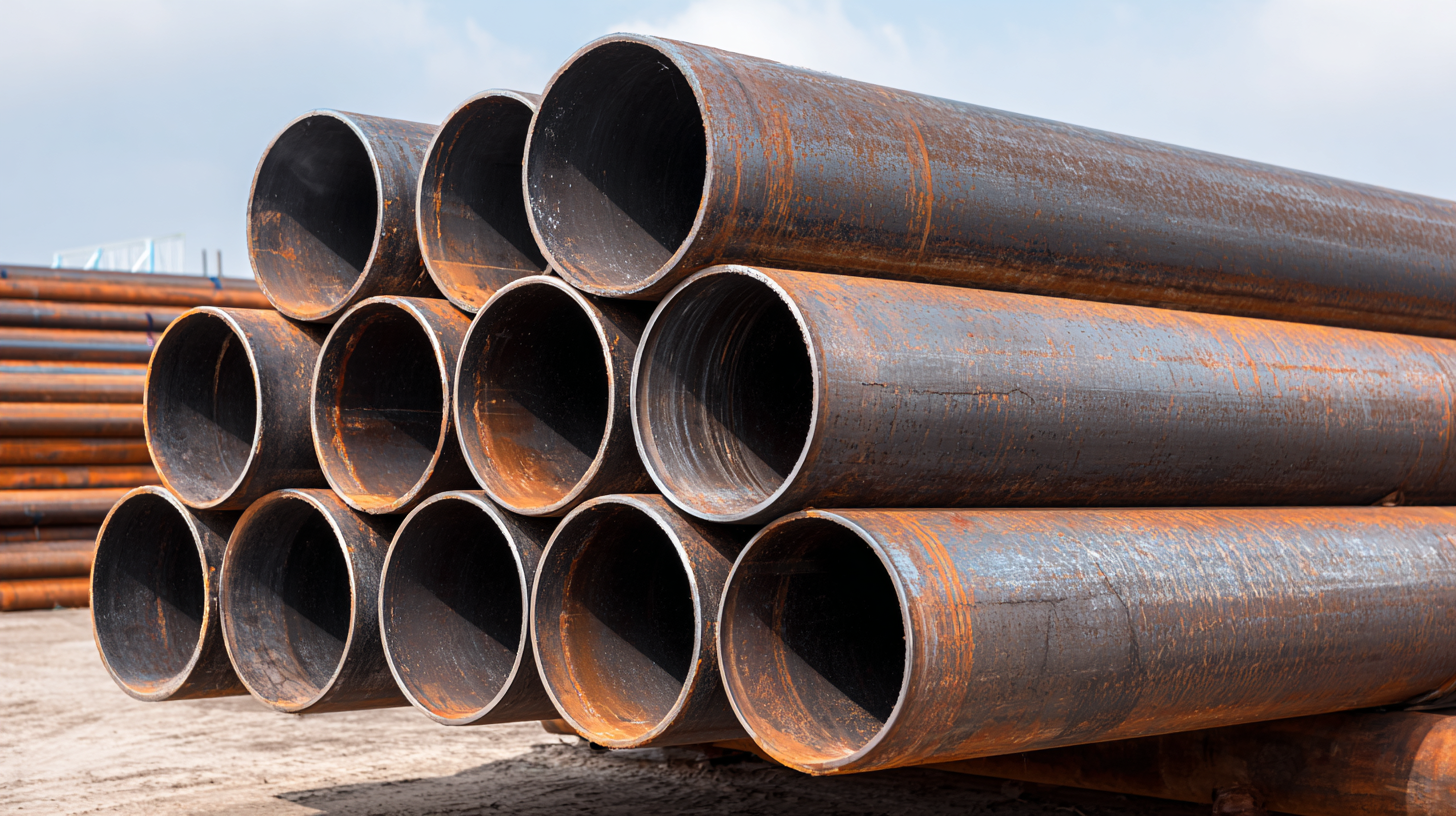Leave Your Message
-
Phone
-
E-mail
-
Whatsapp
In the ever-evolving landscape of global construction, selecting the right materials is pivotal to achieving excellence, and steel pipes stand out as a crucial component in this equation. As industries strive to optimize efficiency and sustainability, understanding the fundamental specifications of the best steel pipe becomes essential for global buyers. This blog will delve into five key specifications that not only enhance performance but also directly impact after-sales service advantages and repair costs. With the future of construction leaning heavily on innovative materials and technologies, recognizing the role of high-quality steel pipes can lead to significant benefits in project longevity and cost-effectiveness. Join us as we explore how to unlock excellence in construction through informed choices in steel pipe procurement.

In the ever-evolving global construction market, understanding steel pipe specifications is paramount for stakeholders aiming to enhance project outcomes. As the market is projected to reach $1.3 trillion by 2025, the efficiency and quality of materials like steel pipes become critically important. According to a recent report by IBISWorld, the demand for steel pipes has been steadily growing, with a notable increase of 3.5% annually, driven by infrastructure projects and urban development.

Key specifications such as material composition, pressure ratings, and manufacturing standards play a significant role in determining the suitability of steel pipes for various applications. For instance, pipes made with high tensile strength, such as ASTM A53 Grade B, are essential in demanding environments, providing superior performance and durability. Furthermore, compliance with international standards like ISO 3183 ensures that these pipes can withstand harsh conditions while maintaining their structural integrity. As global buyers seek reliability in construction materials, understanding these specifications not only enhances procurement strategies but also ultimately contributes to the long-term success of construction projects.
 When considering the best steel pipes for construction, three key material properties stand out: strength, durability, and corrosion resistance.
Strength is crucial as it impacts the load-bearing capacity of the pipes, ensuring they can withstand heavy stress without failure.
Durability extends beyond just the ability to hold loads; it refers to the longevity of the material under various environmental conditions, making it essential for projects exposed to harsh elements.
When considering the best steel pipes for construction, three key material properties stand out: strength, durability, and corrosion resistance.
Strength is crucial as it impacts the load-bearing capacity of the pipes, ensuring they can withstand heavy stress without failure.
Durability extends beyond just the ability to hold loads; it refers to the longevity of the material under various environmental conditions, making it essential for projects exposed to harsh elements.
Corrosion resistance is another vital factor, especially in industries where steel pipes are in contact with moisture or corrosive substances.
Recent research indicates how innovative materials and techniques can enhance this property.
For instance, the exploration of natural substances such as propolis extract has shown promising results as a sustainable corrosion inhibitor for carbon steel, suggesting a future where environmentally-friendly solutions coexist with high-performance materials.
Tip 1: When selecting steel pipes, look for certifications that guarantee their mechanical properties, ensuring the material meets industry standards.
Tip 2: Consider the application environment of the pipes. For marine applications, for example, prioritize pipes with superior corrosion resistance and evaluate advanced coating technologies.
Incorporating these strategies can lead to a more informed purchase, ultimately contributing to the overall excellence of construction projects on a global scale.
In the competitive world of steel pipe manufacturing, adhering to industry standards and certifications is crucial in ensuring quality and performance. For global buyers, understanding the specifications linked to these standards can make all the difference in selecting the best steel pipe for their projects. Certifications not only signify compliance with strict manufacturing requirements but also enhance the trust buyers have in the products they procure. By prioritizing quality, buyers can mitigate risks and ensure the durability and reliability of their structural applications.
As market dynamics evolve, the demand for certified steel pipes is gaining momentum, especially with initiatives like recent policy shifts that require all steel inputs to meet specific compliance standards. This shift underscores the importance of quality assurance at every manufacturing stage, from raw materials to finished products. For manufacturers, achieving and maintaining these certifications is not just about meeting regulations; it also reflects a commitment to excellence and customer satisfaction in an increasingly demanding global market.
When it comes to selecting steel pipes, global buyers must carefully evaluate the crucial balance between cost and performance. The recent insights from various industries underline the importance of rigorous assessment methods not only for energy efficiency but also for material effectiveness. Just as the glass industry strives to enhance energy performance, steel pipe selection should focus on optimizing structural integrity while minimizing expenses.
The dynamics of manufacturing, highlighted by research on ERW steel pipes, emphasize the need for an in-depth understanding of setup, machinery, and operational costs. By strategically analyzing these elements, buyers can ensure that they invest in products that not only meet their specifications but also contribute to long-term savings and sustainability. This approach aligns similarly with the automotive sector, where lightweight materials are preferred for performance improvements and cost-effectiveness. Ultimately, the goal is to achieve the most reliable and efficient steel pipes that cater to both immediate project needs and broader environmental considerations.
In the ever-evolving landscape of construction and infrastructure, steel pipe production has reached new heights, blending innovation with sustainability.
Future trends indicate a significant shift towards advanced manufacturing techniques that not only enhance the quality of steel pipes but also minimize environmental impact.
With the rise of smart manufacturing technologies, such as automation and data analytics, producers can optimize their processes, leading to greater efficiency and lower waste levels.
Moreover, the industry is witnessing a growing demand for eco-friendly materials and practices.
Innovations such as the use of recycled steel and the development of low-emission production methods are becoming standard.
These advancements are not only meeting global buyers' expectations for high-performance products but also addressing the urgent need for sustainability in construction.
As the sector moves forward, it is clear that embracing these trends will be essential for manufacturers aiming to excel in a competitive marketplace while playing a crucial role in mitigating environmental concerns.
